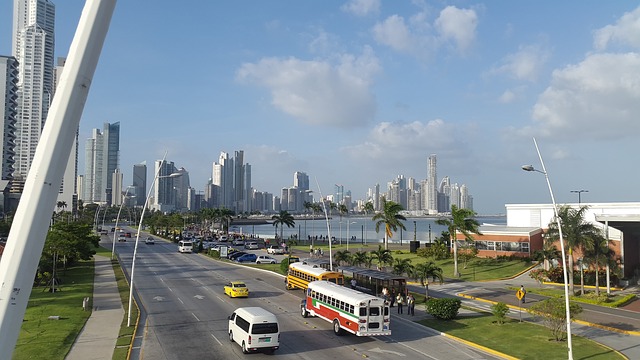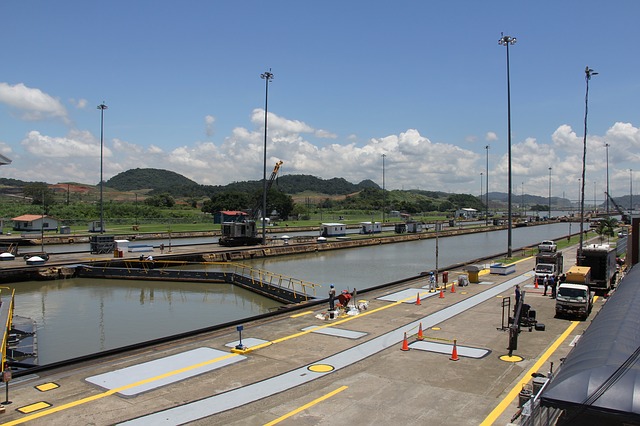
It is no secret that the world has changed during the last decade, increasing international regulations and making it harder for international businesspeople to create an asset-protection structure. The word “offshore” does not exist anymore, at least not in the same way it used to exist.
But this doesn’t mean that there´s nothing we can do in order to protect our assets and increase our wealth; it is all about finding the right jurisdiction and setting up the right structures.
Panama, for example, offers a unique solution in today´s world corporate arena as it has all the benefits of an onshore territory but with incredible tax benefits and incentives, comparable to the old “offshore” concept. This, of course, must be carefully structured and tailored by a highly experienced expert in order to avoid possible problems in the future. If this structure is not properly set up, then the person risks having trouble with governments or international regulating organs and may risk losing it all in the long (or even short) run. Let´s get into detail in our corporate section.
The primary company vehicle is the Panama SA or Sociedad Anonima (literally: anonymous society). This is basically a company limited by shares and can be used for all offshore and international transactions without any tax consequences whatsoever as Panama does not impose worldwide taxation.
In order for the company to be considered one of substance under the BEPS requirements Panama grants an operating license or “visa de operaciones” for most activities. This, plus an office and the filing of regular accounts, makes the company effectively tax resident of Panama and thus subject to Panamanian taxation system.
The company, of course, still does not pay tax on worldwide income.
Under Panamanian law a company must have a minimum of three directors which can be either Panamanians or foreigners and must file tax returns each year. Panama, as a corporate center, is rapidly becoming a jurisdiction of choice for those that require substance but want the benefit of zero tax on worldwide income.
Under the common reporting standards, otherwise abbreviated as CRS, if a company is considered an operating company (i.e. one with active trading or activities) it only needs to report its tax affairs and information to the country of registration. Therefore a Panamanian company with substance needs only to report its earnings and information to the tax authorities of Panama and no one else and, since the tax authorities have no interest in worldwide taxation of the company, this practically means that the company will be legally free from the CRS regime. What is more, the company can invest 50% of its earnings in passive investments, such as shares bonds and stocks, without being considered a passive entity subject to CRS reporting overseas. In this manner, Panamanian companies are very useful when it comes to holding and increasing wealth.
It is advisable for the UBO of a Panamanian company to also have residency and tax residency in Panama. Click here and read our “Tax Residency” section to get more information.
Contact us for a consultation and full info pack.

Other structures
Panama has several corporate structures that are ideal for international business establishment, these include:
The Sociedad Anonima or SA, which is the same as an international company with the requisite of three directors. Further down you will find the main characteristics and advantages of this structure. Since Panama has a territorial tax system, the income of the SA is not taxed in Panama if the source of income is outside the country. In order to operate within the territories of Panama, the SA needs to apply for an operating license, which is easily granted for most types of activities. The advantages of obtaining an operating license is that the company will be deemed a tax resident of Panama and, if it operates via transactional business (not passive investment) under the CRS, the company will only need to report to the tax authorities of Panama.
The limited partnership is a look through entity with limited liability. This means that there can be any number of partners who are taxed in their respective jurisdictions including, if necessary, Panamanian partners.
The Panama Foundation was modelled on the Liechtenstein foundation law and is the perfect asset protection vehicle which can hold passive assets. It is often best practice to hold the Panama company or SA in a foundation. There has never been a case in Panama where the foundation has been set aside. For this reason, the Panama foundation is considered one of the best and indeed most cost-effective asset protection mechanisms. You can find more information about the Panama Foundation structure under the corresponding section. Click here for the section “The Panamanian Foundation”.
The Panamanian trust. Under Panamanian law, only a professional licensed trustee company can be the trustee of a Panamanian trust. The licensing regulations are quite strict and also a significant deposit is required to acquire such a license. Professionally licensed trustee companies are quite useful in holding or managing large assets.
Panama is increasingly being considered an onshore solution because there are substance requirements including the filing of accounts. Panamanian accounting reports can be done quickly and cost effectively.
This puts Panama in a unique position because you meet the substance requirements and, at the same time, benefit from great tax incentives including double taxation treaties and the famous Panamanian territorial system.
Register a company - requirements
Panama company register requirements, according to the law 32 of 1927 on Corporations, are:
1. The name:
The name of the company must be unique.
For this reason,
it is necessary to previously check the availability of the chosen name at the
Public Registry.
2. Subscribers:
All you need are two (or more) people in order to register a company in Panama. These people are not restricted by nationality.
3. Purpose:
The corporations must have a purpose established in their Articles of Incorporation. The corporations can carry out any legal commercial or industrial activity.
4. The authorized capital and shares:
All corporations must establish in their corporate agreement the amount of Authorized Capital and the distribution of shares as well as the classes of shares.
5. Types of shares:
Nominative shares: Issued with the name of the person who owns them.
Bearer Shares: Issued without indicating the name of the owner. Therefore, the owner of the share will be the physical holder of bearer share. These can only be issued after its complete payment.
Shares with Par Value: These have predetermined value before being sold. The value is determined in the Article of Incorporation.
Shares without Par Value: The amount of contribution is not indicated. These shares can only be issued if the number of these shares is previously specified in the Articles of Incorporation.
6. Directors and Officers:
The Panamanian corporations should have a minimum of three directors and Officers (President, Secretary and Treasurer). Directors and officers can be of any nationality.
7. Registered Agent:
It is mandatory by law that every corporation should appoint a Registered Agent, this must be a Panamanian lawyer or a Panamanian Law firm.
8. Domicile:
All the corporations must have their domicile in the Republic of Panama but can have branches in any part of the world.
9. Duration:
The corporation can be open perpetually, but it can be dissolved upon a Shareholders Agreement.
Contact us for a consultation and full info pack.

Corporate in Panama - advantages
Beside its countless tax and advantages and incentives, Panama´s corporate legislation also offers great opportunities, making this jurisdiction a powerful one for asset protection and wealth incrementation.
The Panamanian law is quite permissive as to the nationality of persons interested in incorporating a company, this means that the directors, officers, shareholders or subscribers can be of any nationality and residents of any country. The only requirement is that the corporation, or Sociedad Anonima, has at least three appointed directors.
Moreover, Panama is also a great jurisdiction when it comes to confidentiality. Shareholders of a Panamanian Sociedad Anonima, for example, are not registered in any public records. They are registered, however, in the corporation's Stocks' Register Book.
As we pointed out before, Panama has the unique characteristic of having a territorial tax system, thanks to which, if properly set out, you can pay zero taxes, but at the same time have all the onshore benefits and compliance with international BEPS requirements.
How would this work? Very simple. Your company, let´s call it A, has an office in Panama, it operates from Panama, files tax reports and audit reports as required. However, your company operates from Panama but has businesses and transactions outside of the country´s territory.
In this case, thanks to the territorial tax system your company profit is 100% tax free, and you are still in compliance with the BEPS requirements and other international regulations. Also, you are operating from a “white-listed” country and won´t encounter issues while trading with other jurisdictions.
Also, it is worth noting other punctual advantages that we will list next:
- No paid- in capital is required nor registration in any bank. Assets don't necessarily have to be located in Panama.
- The Articles of Incorporation may be created in English and in any other language.
- The corporation may own any type of goods or assets.
- The Law allows for meetings of directors and shareholders in any country, in person, over the phone or remotely via the Internet.
- To maintain confidentiality, if the corporation has nominee director´s activities, this may be handled through a general power of attorney that must be registered at the Panama Public Registry.
- The corporation does not need any type of commercial license to operate outside or within national territory.
- The corporations in Panama are allowed to own any type of goods or assets.
Other corporate structures registered under other jurisdictions may change its domicile to Panama in order to seize the various opportunities offered here. Any Panamanian corporation is also allowed to re-domiciliate to another jurisdiction.
In addition to this, Panama offers several policies to encourage foreign investment as the Free Zones.
The main difference between a regular Panama Sociedad Anonima and a freezone company is that the latter can only carry out restricted activities, but also enjoy special benefits and exemptions.
Click here to find more information under the section “Panama Free zone companies”.
Contact us for a consultation and full info pack.

BEPS requirements in Panama and transfer pricing
What is transfer pricing
The concept of transfer pricing is very important in Panama. Due to the country´s tax incentives, as we have already described in this section, many choose to establish their operating company in Panama or in one of Panama’s freezones. This operating company is usually used as headquarter for other companies, located and operating in other jurisdictions.
According to what we have described in the corporate section of this country page, this has proven to be a very common and profitable practice, which many businesspeople and investors use. For this reason, transfer pricing becomes a very important issue, and it´s worth considering it if you are operating from Panama with branches abroad.
Firstly, let´s define what transfer pricing means. It is actually a concept that is easy to understand but hard to explain.
Let´s illustrate with a simple example, shall we?
You have a company, let´s call it A, that sells cellphone modems. This company is located in a high-tax jurisdiction. On the other hand, you have a company, let´s call it B, which sells cellphones and it´s located in a low-tax country.
Your company B will need cellphone modems in order to build and sell the cellphone devices. So, if you sell the modems from company A to company B at a very low price, company A would see its income decreased, while company B will have an increase in profit, because it is acquiring goods at a lower cost than the average market.
When we take into consideration the taxation environments, and the fact that you own both companies, it becomes clear that you are indirectly but still legally shifting your tax burden to a lower-tax jurisdiction.
Company A has less profit, but won’t be obliged to pay sideral taxes, and the profits become higher for company B, where the tax percentage is lower. This will result in an overall profit for you.
This is the basic structure, in a very simple way, of what transfer pricing means. Now, what has happened during the last ten years with the increase of international regulations and how has this affected Panama?

Transfer pricing in Panama, important considerations
The adoption of BEPS standards in Panama and the submissiveness to international pressure changed the whole game for Panama´s corporate sector. But this change in rules does not mean that there are no more options for asset protection or tax optimization, it only means that it is necessary to be more careful in order to properly comply with the international regulations. For this, we recommend consulting with Mundo´s experts as it is very hard to keep up with all the updates.
The new BEPS requirements also require that the freezone companies (Colon Free Zone, Oil Free Zone, Panama Pacific Special Economic Area, Multinational Corporations central offices, City of Knowledge or any other free zones) or any tax payer that is involved in transactions with Panama companies, must comply with international transfer pricing regulation, even if they are completely tax exempted.
This is a very important point that can easily lead to confusion and trouble. In Panama foreign profit is not technically tax exempt, in theory, it does pay tax but at a 0% rate.
This is more than just a technicality. According to this, it is important for each company (freezone registered or not) to dully present their tax filling and required audits in due form and time, even if the tax rate is zero.
This also applies for transfer pricing. If your company in Panama operates with other companies in Panama or other jurisdictions, and if these companies trade goods and have monetary transactions between them, you will have to comply with transfer pricing international regulations, and (we can´t stress this enough) even if your tax rate is zero.
Now, Panama surprises us again in this regard because it also shows incredible benefits, even with the reporting and the regulation compliance.
Panama has Transfer Pricing regulations that make it easier for holding companies to keep a whole transnational group in order and to be able to face the tax requirements.
In fact, it has the classic valuation and transaction methods, which are almost uniform in most countries that follow the OECD Transfer Pricing Guidelines.
Additionally, the fact that the currency is US dollarized and the IASB's IFRS accounting standards are the ones authorized by the country for tax purposes, makes the transfer pricing process much easier, especially when it comes to cost accounting.
Thanks to the dollarized economy and to the unified accounting standards, an easy understanding can be achieved between the accountants and administrators of different jurisdictions, working under the same corporate group.

Panama Sociedad anónima (international company) vs LLC
These are the two most common corporation types in Panama, and they have differences and similarities. Which structure would fit you best? That is a question that can only be answered during a private consultation with one of Mundo´s experts, considering the peculiarities of your case. However, in this section we present a brief but concise summary of the differences and similarities between both structures. This will help all readers have a quick understanding of each structure´s advantages and disadvantages, providing a general idea of which one would best serve each person´s interests.
Contact us for a consultation and full info pack.
|
Sociedad
Anonima |
LLC |
|
No
minimum shareholders required |
Minimum
of 2 members |
|
Shares
can be easily transferred either directly from hand to hand (bearer shares)
or endorsing the certificate of action (registered shares). |
Shares
are not considered negotiable securities. In order to transfer shares, the
procedure needs to be approved and recorded in a public minute. |
|
-Minimum
of three persons in the board -Natural
person only -Any
nationality |
-1
minimum administrator -Legal
or natural person -Any
nationality |
|
-Not
eligible for pass-through tax treatment |
-Eligible
for pass-throught tax treatment |
Similarities - Sociedad Anonima and LLC
In both structures the capital should not be paid or released but is representative in shares or participation.
The structures provide protection to shareholders / partners since it is considered a separate legal entity and the members are only liable to the extent of their participation.
They have the same tax advantages.
Both figures should only pay an annual fee of US $ 300.00 to keep up with the Panamanian state.
If you want to register a company in Panama, contact us and start the process right now!
Click here for an interview with our expert on corporate options in Panama
$170,000
$2,500,000
$350,000
$1,400,000
$395,000
More and more people are deciding to obtain dual citizenship, especially Americans, Canadians, Weste...
Given the increased interest in how to get São Tomé citizenship, especially from Canadian and U.S. c...
When it comes to Panama residency, banking plays an important role, whether it is for proving solven...
Talking about the five-flag theory is talking about wealth and how to preserve it for generations.&n...
Today, we are proud to present the Sao Tome CBI program, an option that stands out for its simplicit...



.png.small.WebP)


.png.small.WebP)


.png.small.WebP)
